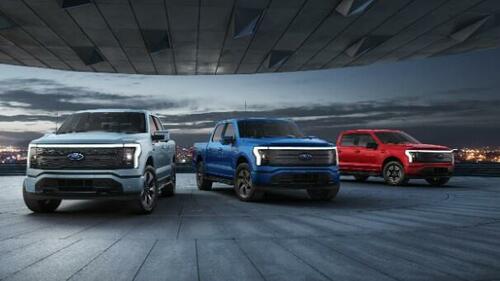Ford is now the latest U.S. company to announce sweeping layoffs, with Bloomberg reporting this week that the auto manufacturer plans to lay off “hundreds of salaried workers” that are primarily engineers. Monetary policy continues to work wonders.
The layoffs are part of a plan to boost profits and lower operating costs as the company shifts toward EVs, the report says. And after all, who needs engineers when you can adopt Tesla’s technology, like Ford announced it would be doing with charging standards just weeks ago?
The cuts will be to engineers in EVs, traditional combustion engine models and commercial vehicles, the company said. The layoffs will number in the hundreds, despite CEO Jim Farley claiming earlier this year the company would need 25% more engineers than rivals to produce its EVs.
The company expects to lose $3 billion in 2023 on its EV business but hopes for 8% returns on battery powered models by the end of 2026. Ford plans on building 2 million EVs per year by that point.
T.R. Reid, a company spokesman, told Bloomberg: “We’re not cost competitive. We have specific priorities and ambitions that have implications for skills, assignments and staffing needs. These changes are consistent with that. They’ll make us cost effective.”
Tesla has forced many EV manufacturers to think closer about costs, with Elon Musk’s company starting 2023 by slashing prices on its best selling models, successfully stoking much-needed demand to maintain its dominance in the EV market.
And it looks as though Tesla is still spearheading the industry for the time being. Recall, as part of Ford’s shift to EVs, it announced its customers would be able to tap into Tesla’s 12,000 Superchargers.
“This is great news for our customers who will have unprecedented access to the largest network of fast chargers in the US and Canada with 12,000+ Tesla Superchargers plus 10,000+ fast-chargers already in the BlueOval Charge Network,” said Jim Farley, Ford president and CEO, at the time.
“Widespread access to fast-charging is absolutely vital to our growth as an EV brand, and this breakthrough agreement comes as we are ramping up production of our popular Mustang Mach-E and F-150 Lightning, and preparing to launch a series of next-generation EVs starting in 2025.”



